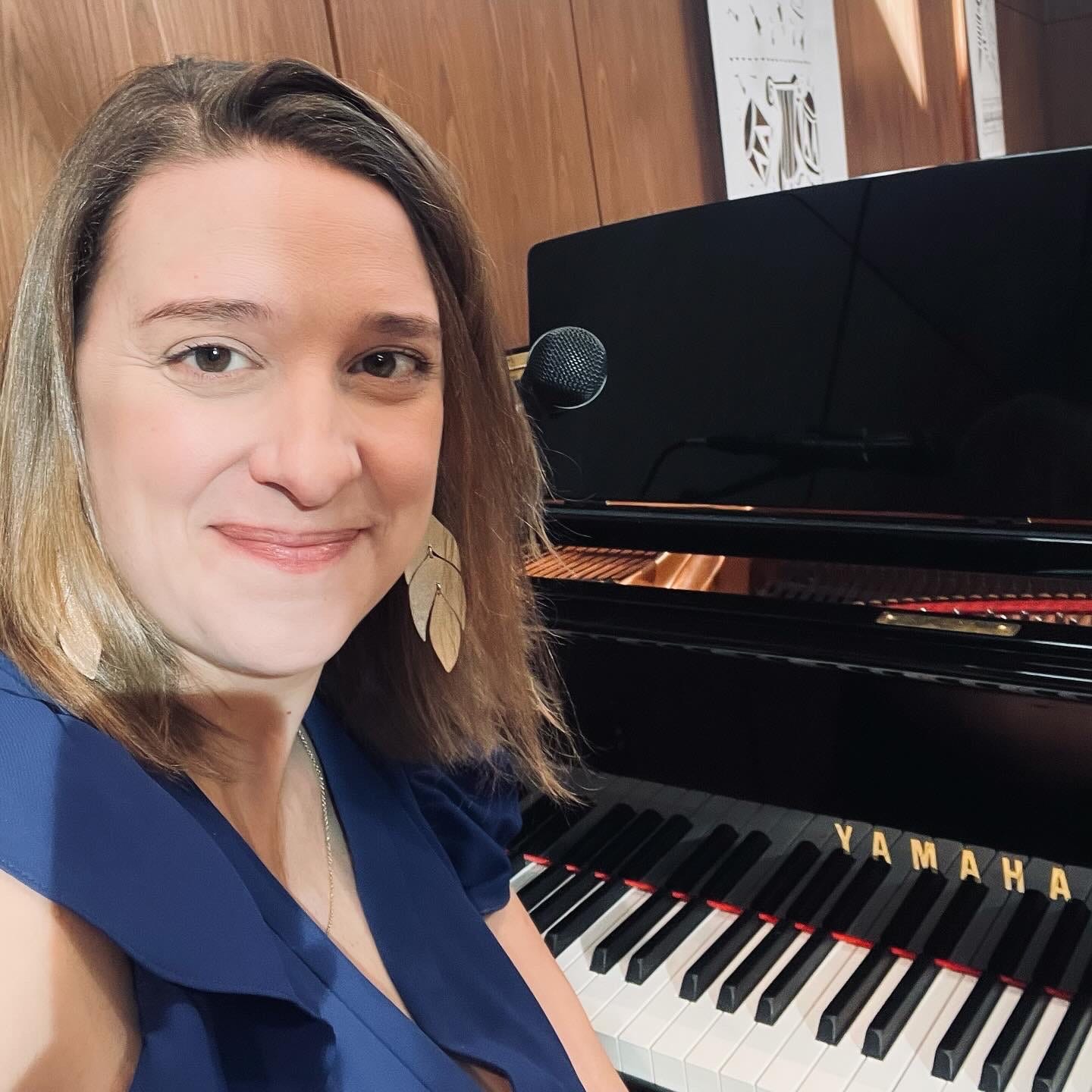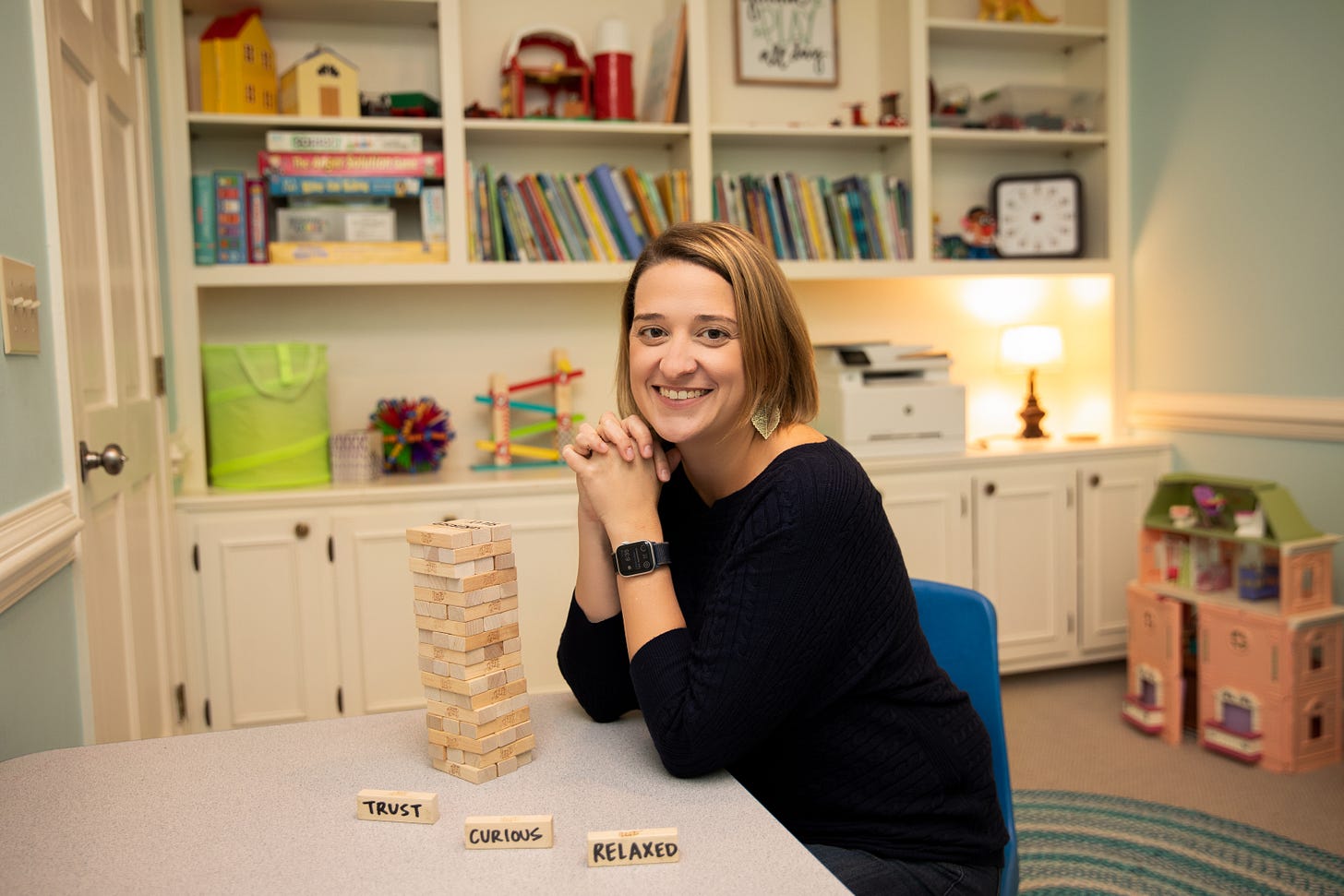
Every time I think about New Year resolutions, I wonder what our kids observe in us when it comes to goal-setting and behavior change. Do they see us trying and failing and coming back to try it again each year? Or, do they wonder why we even set New Year resolutions just to toss them out within 30 days?
Many times on this journey of parenting a neurodivergent child, I have felt that success is not about getting things “right” but more about just continuing to show up. I think resolutions of any kind, not just those we make because the calendar says so, are the same way. Just keep showing up.
I think New Year resolutions can be hard to keep because they are usually just thoughts. We have an idea of what we want to achieve, we think it will be good for us, and we imagine the outcome being rewarding in some way, but we can’t will an idea into fruition just by thinking about it. We won’t get there unless we create behavior changes within our daily habits. My favorite book on this topic is “Atomic Habits” by James Clear where he came back from an injury one day at a time and ended up changing his life. Sometimes I wonder if we should throw out the tradition of resolutions all together. Instead of New Year resolutions, what if we set New Year intentions?
I was recently reading journalist Maria Shriver’s newsletter where she shared a story of a friend who picks a word to focus on for the year. This struck me as so simple yet so impactful. Truly a “less is enough” vibe I’m always striving for in this busy culture of ours. For myself, someone who struggles to stop thinking, focusing on one word sounds totally doable and a helpful re-centering every time my focus strays from my intention for the year. If you’re feeling like your New Year resolution should be somewhere between mastering daily meditation and running a marathon, one word might fit for you, too.
Reflections of This Year
As I reflect on 2023, I try to see all the moments as a collective experience, but it can be hard not to notice goals that I didn’t reach. I’ve been trying to write a book proposal for a year. That’s right, y’all, 12 whole months. While I’m making small strides and continue to feel the fire in my belly to get my ideas out into the world, this process is not at all a fast one and my perfectionistic academic tendencies would like for me to be making more progress than I am. I have to keep reminding myself that I spent ages 4-26 of my life being a student and that identity is sometimes hard to shake (you can read more about what school was like for me here). I’m no longer a student but now a mother, wife, psychologist, and writer, not to mention continuing my stints as friend, daughter, and sister.
My writing has been interrupted many times this year by life’s happenings. Some interruptions have been good, like realizing the positive impact of music on my mental health by adding singing and piano back into my life after a 20 year hiatus. Other interruptions have been stressful, involving sickness and family emergencies and just plain fatigue. I’m learning that goals (and resolutions) just don’t exist within a time frame because our growth and change doesn’t fit within a timeframe either—just like the kids we are raising.
Joyful interuptions like discovering music again has been the best kind of reason for my work to be moving more slowly this year.
Thinking about growth and development across the lifespan really is not that different from thinking about how we support our neurodivergent children who are on their non-linear paths and schooling us along the way.
Top-Down vs Bottom-Up Thinking
Every time I feel like something isn’t working, it’s usually because I’m coming at it from the top-down and I need to come at it from the bottom-up. Top-down processing, first discussed in 1970 by British psychologist Richard Gregory, is the idea that we process information within the context of what we already know.
“Top-down processing involves the brain “sending down” stored information to the sensory system as it receives information from the stimulus, enabling a plausible hypothesis to be made without the need to analyze every feature of the stimulus.”1
Around the same time, psychologist Eleanor Gibson introduced the theory of bottom-up processing where we process the world through sensory data.
Bottom-up processing is an explanation for perceptions that start with an incoming stimulus and work upward until a representation of the object is formed in our minds. This process suggests that our perceptual experience is based entirely on the sensory stimuli that we piece together using only data that is available from our senses.2
More recently, Dr. Mona Delahooke translated these theories within the context of stress responses in young and neurodivergent children so that we can better understanding where behavior is coming from.
When I think about our kids not being able to learn until their body is regulated, I sometimes think about how we, as adults, also cannot reach our goals if we are just thinking about the outcomes and not tuning into the daily sensory experiences that may be getting in the way of us creating change for ourselves.
The solution is actually simple but takes self-discipline to establish a routine to tune into what our body and soul need in the short-term. If we could just focus on that, the long-term outcomes truly would follow. We just have to have the patience for the long-term goal to happen, which is why many of us stop striving for resolutions when we don’t see results fast enough (myself included). Part of the problem here is the normalization of the fast-paced culture around us which makes us feel things are taking too long.
How This Applies to Parenting Neurodivergent Kids
You’re likely already skilled at throwing out timeframes. How many of us have reframed our parenting mindset to disregard our child’s chronological age and just follow their development and interests from the bottom-up? So many of us. It’s really the only way. I propose that it’s the way for all humans to make behavior change. Once again, the children are the teachers.
One of the most important lessons I’ve learned from neurodivergent kids is that they can’t learn unless their sensory needs are met. After years of realizing I was people-pleasing and perfectionist-achieving (who’s with me on this one?), I have come to realize that I might be meeting goals, but am I resting, creating, or connecting? All of these actions are really art forms that take practice and patience.
So, if you realize you’ve been overriding your body’s needs to complete tasks, meet deadlines, and yes, achieve goals, maybe this year’s intention is a word and not an outcome? This New Year, let’s show our kids that we have intentions to continue showing up, accepting what we don’t know, and working together to figure it out.
“The opposite of anxiety isn’t calm; it’s trust.”
~Michael John Carley
So, my word for 2024 is going to be TRUST. If you’ve ever heard me speak, you know that one of my favorite quotes is by autistic adult Michael John Carley who said, “The opposite of anxiety isn’t calm; it’s trust.” This clears things up for me in one sentence. So many of us are walking around calm as can be but with loads of anxiety firing on inside. How we reduce anxiety is to trust that we will either figure it out, connect with someone we trust to figure it out, or trust that we will be okay accepting that we may never figure it out.
I’m just going to keep showing up with consistent intentions to write, sing, play, work, and connect with all of you, trusting that at some point I will have written work to put out into the world.
What’s your word going to be this year? Tell us in the comments!
Let’s stay connected,
~Dr. Emily
I’m Dr. Emily, child psychologist and former school psychologist, and I’m on a mission to help parents and teachers be the best adults we can be for the neurodivergent kids and teens in our lives. This isn’t about changing the kids, it’s about changing us. Learn more with my resources for parents, teachers, and schools at www.learnwithdremily.com.
**All content provided is protected under applicable copyright, patent, trademark, and other proprietary rights. All content is provided for informational and education purposes only. No content is intended to be a substitute for professional medical or psychological diagnosis, advice or treatment. Information provided does not create an agreement for service between Dr. Emily W. King and the recipient. Consult your physician regarding the applicability of any opinions or recommendations with respect to you or your child's symptoms or medical condition. Children or adults who show signs of dangerous behavior toward themselves and/or others, should be placed immediately under the care of a qualified professional.**
https://www.simplypsychology.org/top-down-processing.html#:~:text=Top%2Ddown%20processing%20involves%20the,every%20feature%20of%20the%20stimulus.
https://www.verywellmind.com/bottom-up-processing-and-perception-4584296







I really loved everything about this post. Having a word instead of focusing on outcomes resonates with me- right now, I'm focusing on supporting my Dad adjusting to having Parkinson's disease and will be helping my daughter get adjusted to wearing a back brace. These are situations where all I can do is show up, be empathetic, be unwavering with my support, and remain sturdy- and for those reasons, my word for 2024 is going to be acceptance.